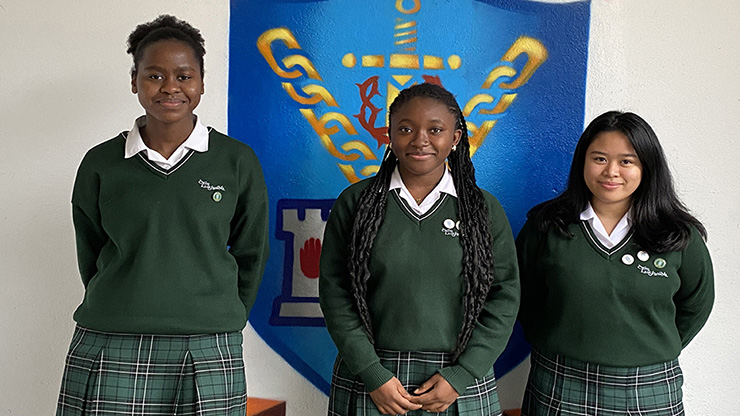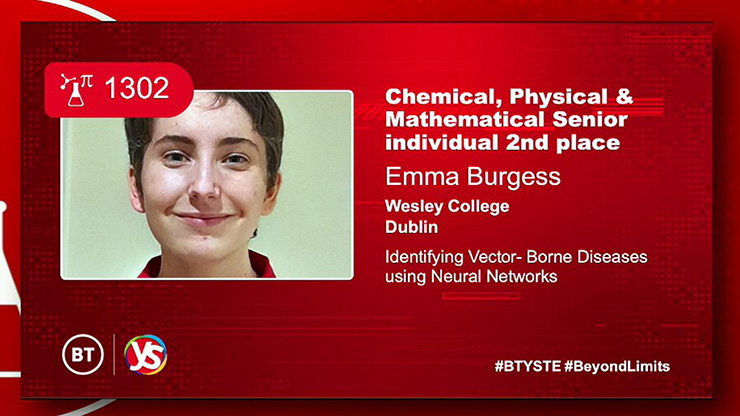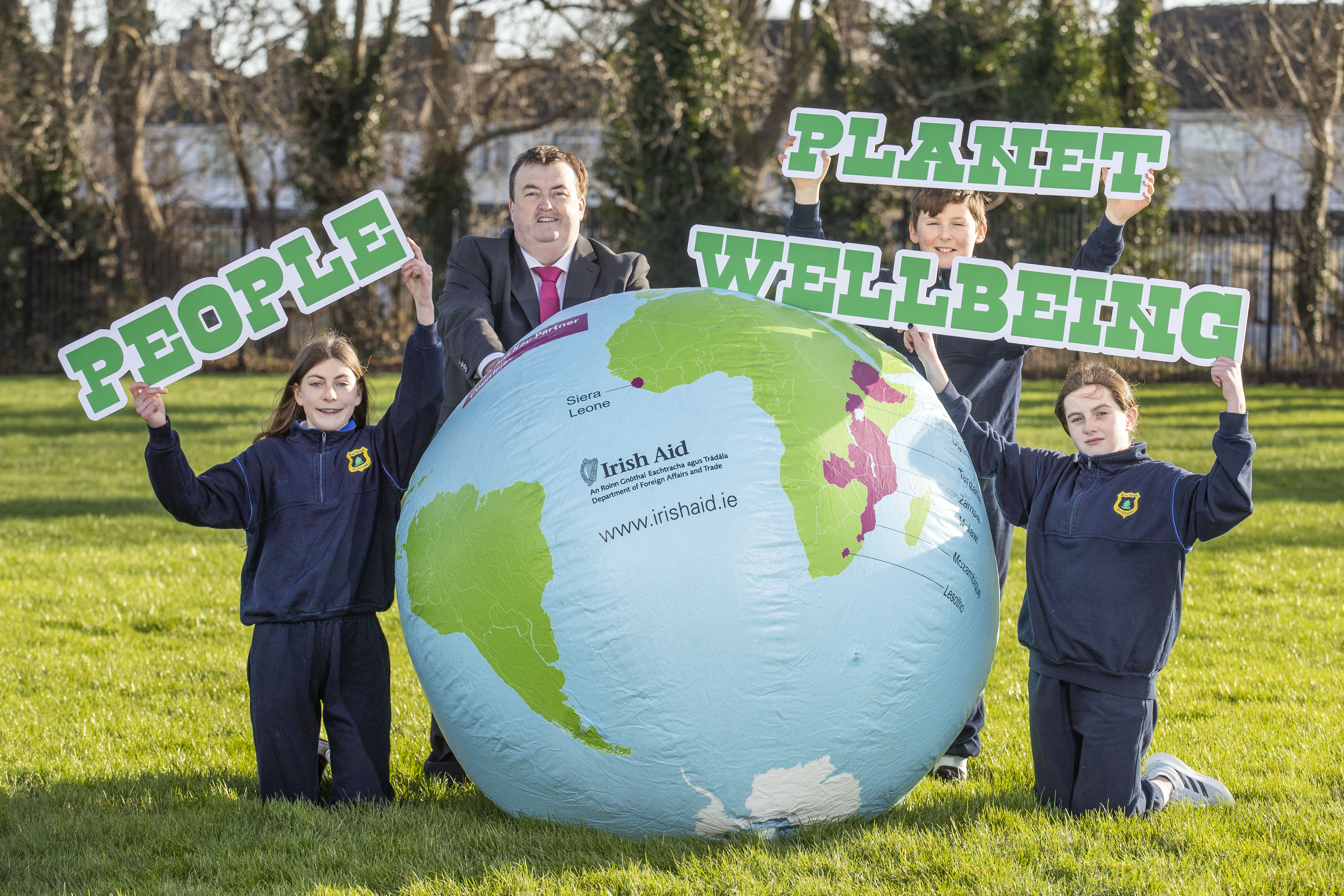BTYSTE Self Help Africa/Irish Aid Science for Development Award Winners 2022
News
24 January 2022
Photo Credit: BTYSTE - Winners of the Science for Development Award 2022
Congratulations to all participants at BT Young Scientist and Technology Exhibition 2022 and in particular to the winners of the Self Help Africa/ Irish Aid Science for Development Award.
The Science for Development Award winners 2022 are Jona Garcia, Claudine Mulihano and Iman Shittu from St Louis Secondary School, Dundalk, Co. Louth. The project, entitled 'A renewable and electricity - free cooling system for food refrigeration that can combat world hunger' is a salt and sunlight driven affordable and sustainable system to help preserve food soon after harvesting. The project impressed the judges, also coming second in the Biological and Ecological Senior Group category.
Minister Colm Brophy TD, Minister of State for Overseas Development Aid and Diaspora at the Department of Foreign Affairs, presented the students with the award at an exciting online ceremony on 14 January.
He later said, "The Science for Development Award allows students to develop ideas to address some of the big challenges facing the world, especially in some of the world's poorest countries. I would like to congratulate this year's deserved winners from St Louis Secondary School in Louth. Their project, a food refrigeration system driven by sunlight and saltwater, is climate smart and can help improve the food security of communities with limited, or no, access to electricity.
"Winning this year's Science for Development Award is particularly impressive given the remarkably high standard of entries. I would like to congratulate all the other students who produced fascinating projects, each of which has the potential to make a real difference in people's lives. It is wonderful to see so many young people using science to help create a better and more sustainable world."
Ms Orla Muldoon is the teacher of this year's winners. The award will enable students and teacher to travel to Africa as part of a Self Help Africa schools visit when it is completely safe to do so. The visit will give them an opportunity to reflect upon and possibly further develop the project.

Many other projects also displayed a global development theme, and a determination to find solutions to global problems. Sive Brady and Poppy Hennessy from Moate Community School, Westmeath were also concerned about preserving food. "High Frequency to Save Food" combats hunger in a cheap and sustainable way by using high frequency sound to maintain freshness in perishable foods.
Emma Burgess from Wesley College, Dublin's project was, "Identifying Vector- Borne Diseases using Neural Networks". Emma's project aims to reduce the cost of disease identification in the less affluent half of the world where these diseases can be fatal. Emma's project came second in the Chemical, Physical & Mathematical Senior Individual category.
Neil O' Sullivan, Lyle Hatchett and Orrin Shanahan from Clonakilty Community College presented "Low Cost Air-Conditioning Kit, a low cost passive air conditioning unit which uses evaporative cooling to help cool houses in hot climates.
The overconsumption and waste associated with Fast Fashion consumes extraordinary volumes of fresh water and creates chemical and plastic pollution worldwide. A number of students developed projects to tackle this problem. Lilian Gleave from Kinsale Community School's project, "To investigate the world of fast-fashion and how to incentivise mending clothes instead of discarding them", won the Education Sustainable Development Award.
This is the seventeenth year that Irish Aid has funded the €6,000 travel bursary which is awarded to the winning project and which aims to encourage teachers and students to develop ideas, using appropriate scientific technology, that may prove useful at community level in the Global South.
The aim is to give students a greater insight into the wider world, and their role as global citizens. The award is adjudicated entirely independently by the judges at the annual BT Young Scientist and Technology Exhibition. The judges look for evidence that the students have made the link to the global, setting out how many modern challenges are global challenges, which require global solutions.


